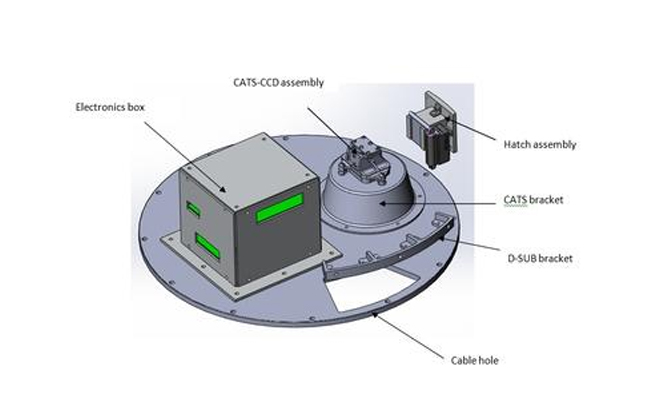PoleCATS
CATS analyser with a CCD detector to select electrons by energy and investigate the electron population through the rocket's trajectory.

6 September 2012
PoleCATS (the Polar test of the Conceptual And Tiny Spectrometer) is a selected project run by students from UKSEDS (UK Students for the Exploration and Development of Space) to fly the CATS analyser with a CCD detector on a sounding rocket from Kiruna in Arctic Sweden. The experiment is designed to select electrons by energy and investigate the electron population through the rocket's trajectory.
REXUS experiments are launched on an unguided, spin-stabilised rocket powered by an Improved Orion Motor with 290 kg of solid propellant. It is capable of taking 40 kg of student experiment modules to an altitude of approximately 100 km. The vehicle has a length of approx. 5.6 m and a body diameter of 35.6 cm.
The REXUS/BEXUS programme is realised under a bilateral Agency Agreement between the German Aerospace Center (DLR) and the Swedish National Space Board (SNSB). The Swedish share of the payload has been made available to students from other European countries through a collaboration with the European Space Agency (ESA).
EuroLaunch, a cooperation between the Esrange Space Center of SSC and the Mobile Rocket Base (MORABA) of DLR, is responsible for the campaign management and operations of the launch vehicles. Experts from ESA, SSC and DLR provide technical support to the student teams throughout the project. REXUS and BEXUS are launched from SSC, Esrange Space Center in northern Sweden.
 Close
Close

